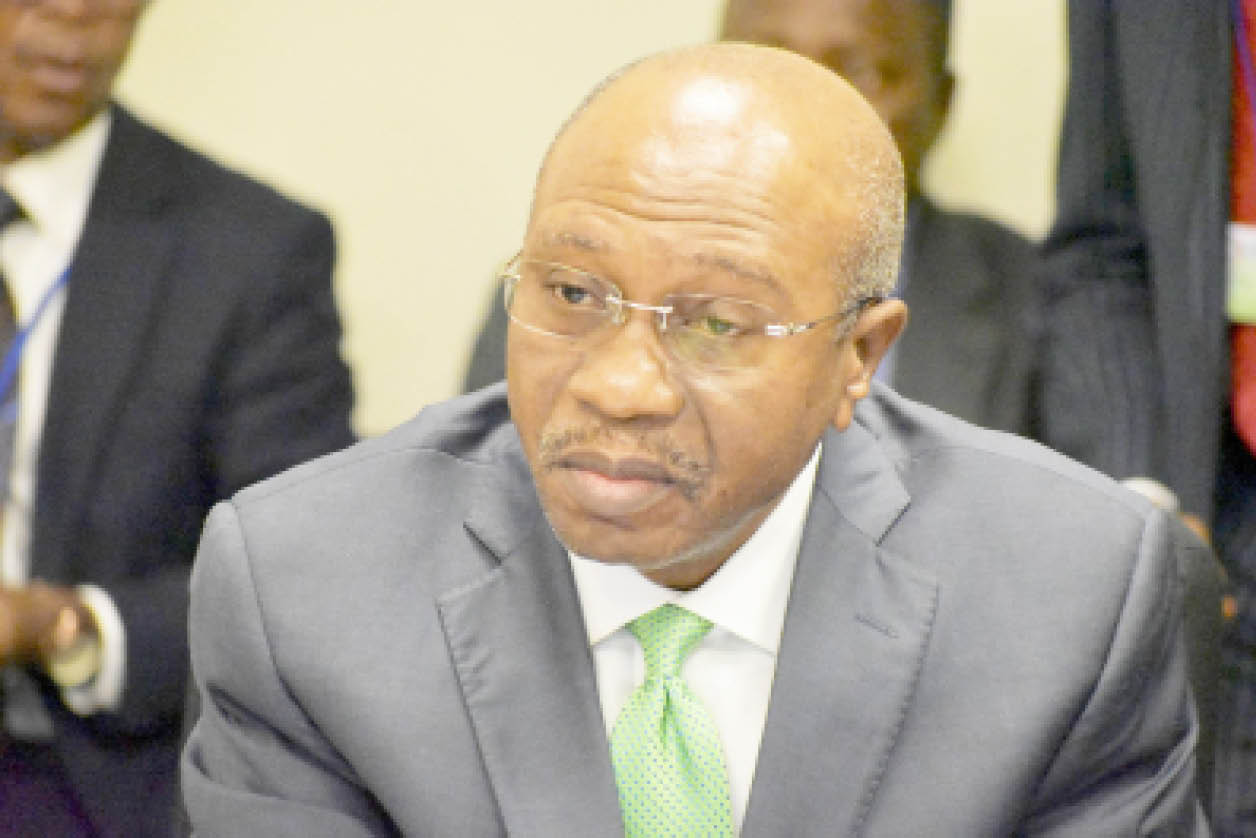Obey Supreme Court, grant Nigerians access to their money
The Supreme Court’s judgment on Friday on the disputed naira redesign and cashless policy between some state governments and the federal government was a loud re-echo of the viewpoints of a cross-section of Nigerians who insist that the policy is ill-conceived and must be reviewed in the interest of the people and the economy. The […]

Ex-Governor of CBN, Godwin Emefiele
The Supreme Court’s judgment on Friday on the disputed naira redesign and cashless policy between some state governments and the federal government was a loud re-echo of the viewpoints of a cross-section of Nigerians who insist that the policy is ill-conceived and must be reviewed in the interest of the people and the economy. The judgment, delivered by a seven-man panel and read by Justice Emmanuel Agim, held that the decision made by President Muhammadu Buhari and the Central Bank of Nigeria (CBN) Governor, Godwin Emefiele, was a breach of procedure because the National Council of State (NCS), the Federal Executive Council (FEC) and the National Economic Council (NEC) were not consulted before the policy was implemented.
Affirming the hardship the policy has caused in the country, the Supreme Court nullified the decision, saying the N200, N500 and N1,000 notes would remain and be used as legal tender until December 31, 2023.
The naira redesign and withdrawal limit policy announced in October, 2022, was meant to rein in over N2trn which was outside the vaults of banks. It was also meant to undercut kidnappers who demand ransom in outrageous sums, tame corruption and money laundering; frustrate vote buying during the 2023 elections; tackle inflation and promote a cashless economy.
Though these objectives are noble, the implementation of the policy has been too shabby for the attainment of these objectives. For one, the cash withdrawal limit is totally unrealistic in an economy under double-digit inflation. Secondly, the CBN failed to make available the redesigned naira notes, leading to unmanageable chaos at Automatic Teller Machines (ATMs), banking halls and the economy at large.
- Tinubu capable, Obi not destined to be president in 2023 – Ohanaeze
- Old naira notes: Nigerians await decision, lament hardships
Before the Supreme Court judgment quashed the policy, the Manufacturers Association of Nigeria (MAN) decried the acute scarcity of cash, saying it was slowing down the economy and could consequently worsen unemployment in the first quarter of 2023. The President of MAN, Francis Meshioye, stated at an event last week that manufacturers were facing a very critical time as a result of the persistent scarcity of the new naira notes and that the economic hardship being experienced by Nigerians in accessing the new naira notes was hindering the free flow of goods to end users thereby resulting in huge piles of stock for manufacturers which could eventually lead to lay off of staff.
At the event, the Chief Executive Officer (CEO) of the Centre for the Promotion of Private Enterprises (CPPE), Dr Muda Yusuf, noted that, “Industries are grinding to a halt because workers are unable to come to work due to absence of cash. We still operate in a highly informal environment. It is true that the CBN has the right to redesign currency, but it does not have the right to deprive the citizens of their cash. The choice of the mode of store of value is a fundamental right of citizens. The CBN has no right to impose that choice on citizens.”
Apart from the hardship the withdrawal of the naira has brought upon Nigerians, the economic basis of the policy is faulty. Dr Yusuf argued that, “The claim by the CBN that the economy has too much cash outside the banking system has no basis in economic theory, neither can it be supported by empirical evidence. As at December, 2022, total money supply was N52trn, cash component of money supply was N2.6trn, which was just five per cent. Similarly, the country’s Gross Domestic Product (GDP) was N202trn, which gives a cash to GDP ratio of 1.3 per cent. These ratios are some of the lowest around the world, which shows that the Nigerian economy is not really a cash-dominant economy.”
Other international financial bodies like the World Bank and the International Monetary Fund (IMF) have also pointed out that the redesign policy could hurt the economy. The pains Nigerians have had to go through since January, 2023, over this government’s so-called drive to impose a cashless policy has come with very little benefit. In fact, whatever benefits the policy has, has been undermined by the suffering Nigerians have had to endure.
We, therefore, call on the president and the CBN to, as a matter of urgency, obey the Supreme Court judgment and return the N200, N500 and N1,000 the apex bank mopped up from the economy. The judgment is a soft landing for President Buhari and the CBN governor because it has given the government additional 10 months to make the redesigned naira notes available. Nigerians cannot continue to endure this unnecessary hardship caused by an economic policy that makes no sense.
There are other laws in place in Nigeria to tackle kidnapping, money laundering, vote buying, inflation, corruption and other economic crimes. This naira redesign, which has crushed the economy and made life unbearable, must be withdrawn immediately. The CBN should obey the Supreme Court and make cash available to Nigerians without any further delay. It cannot afford to do otherwise as the economy at the moment is at a standstill and must be rejuvenated urgently.
Furthermore, obeying the Supreme Court order is one of the last acts President Buhari has left to burnish or rebuild his reputation as a president who respects the law.
